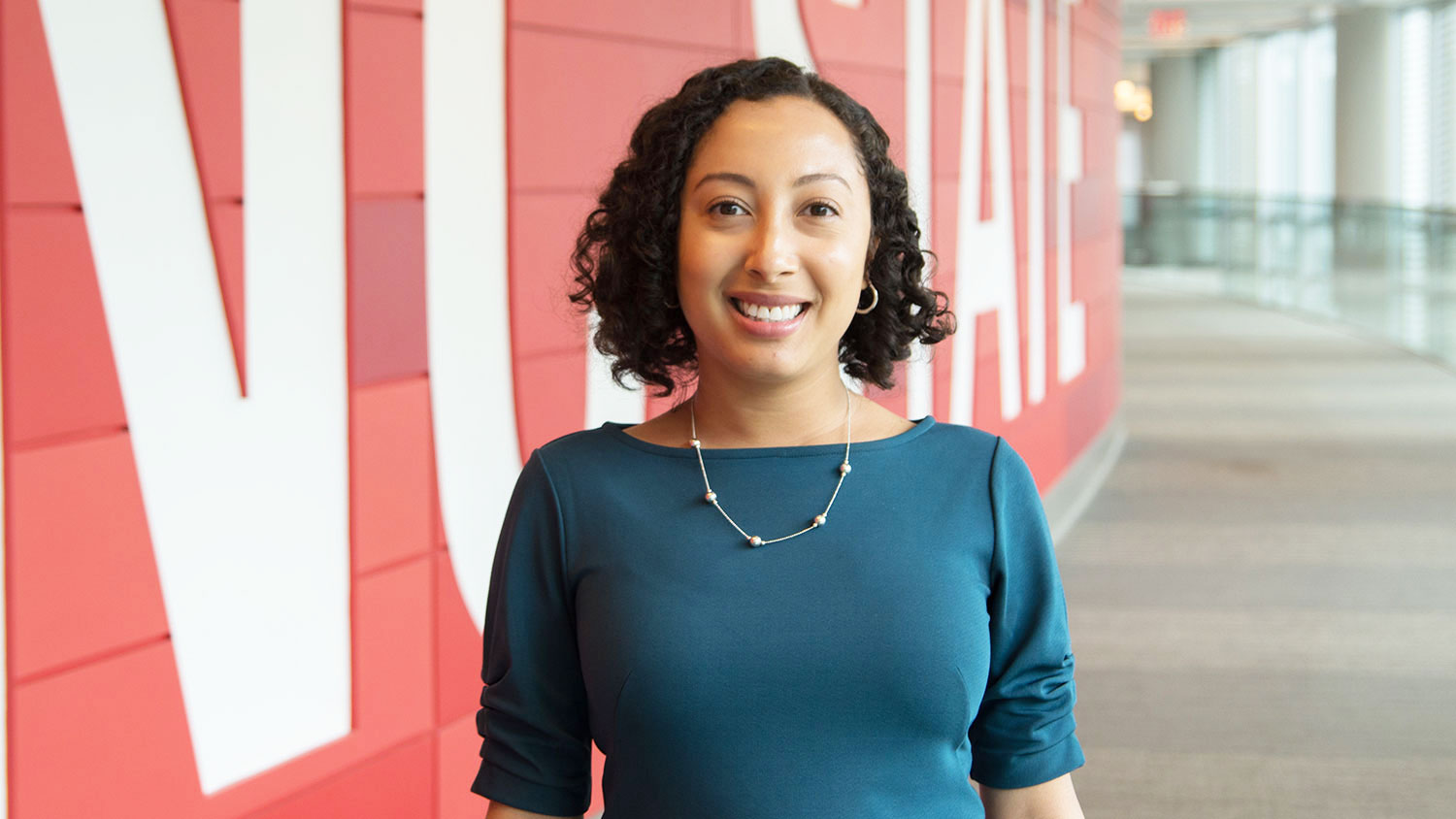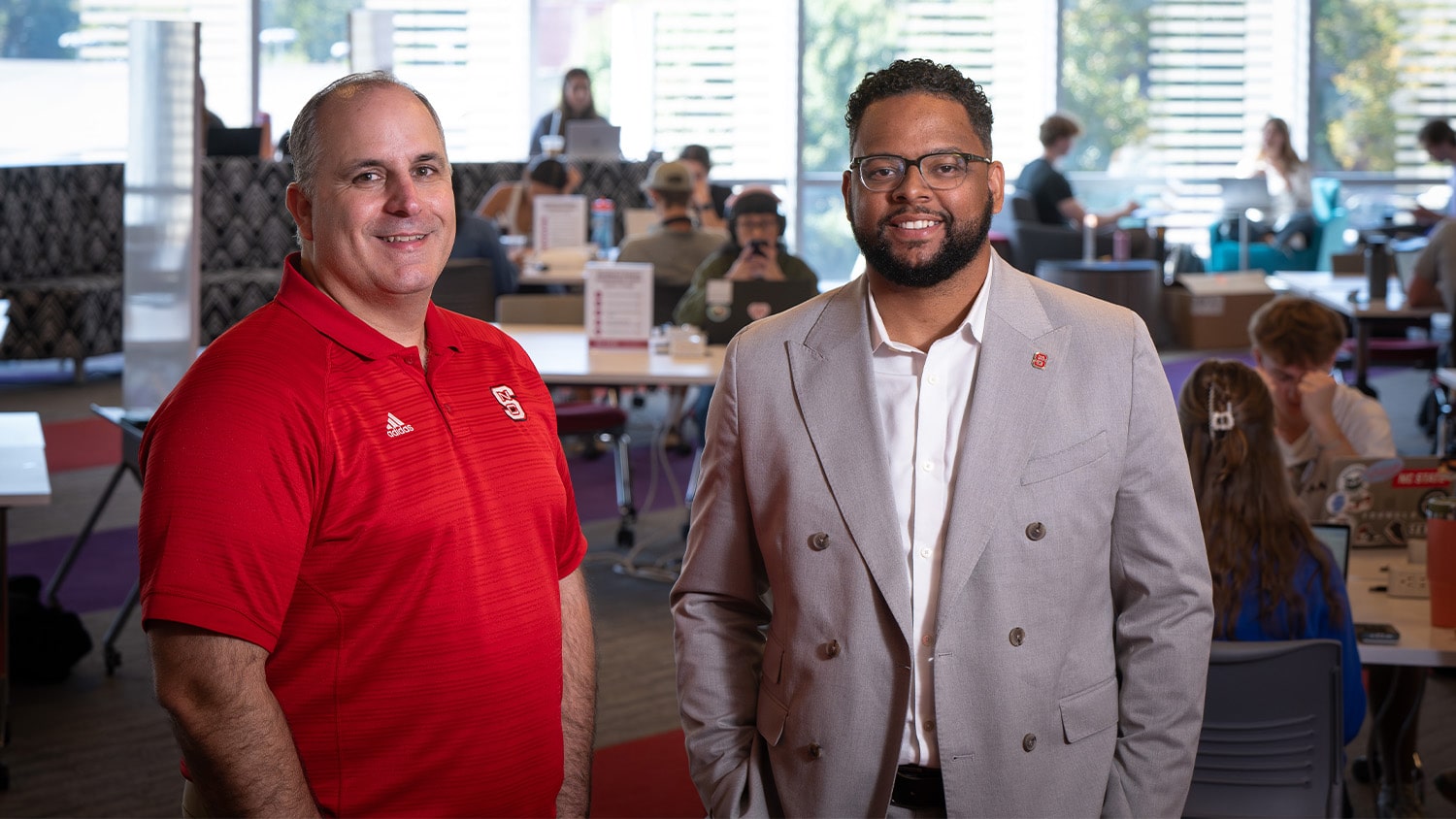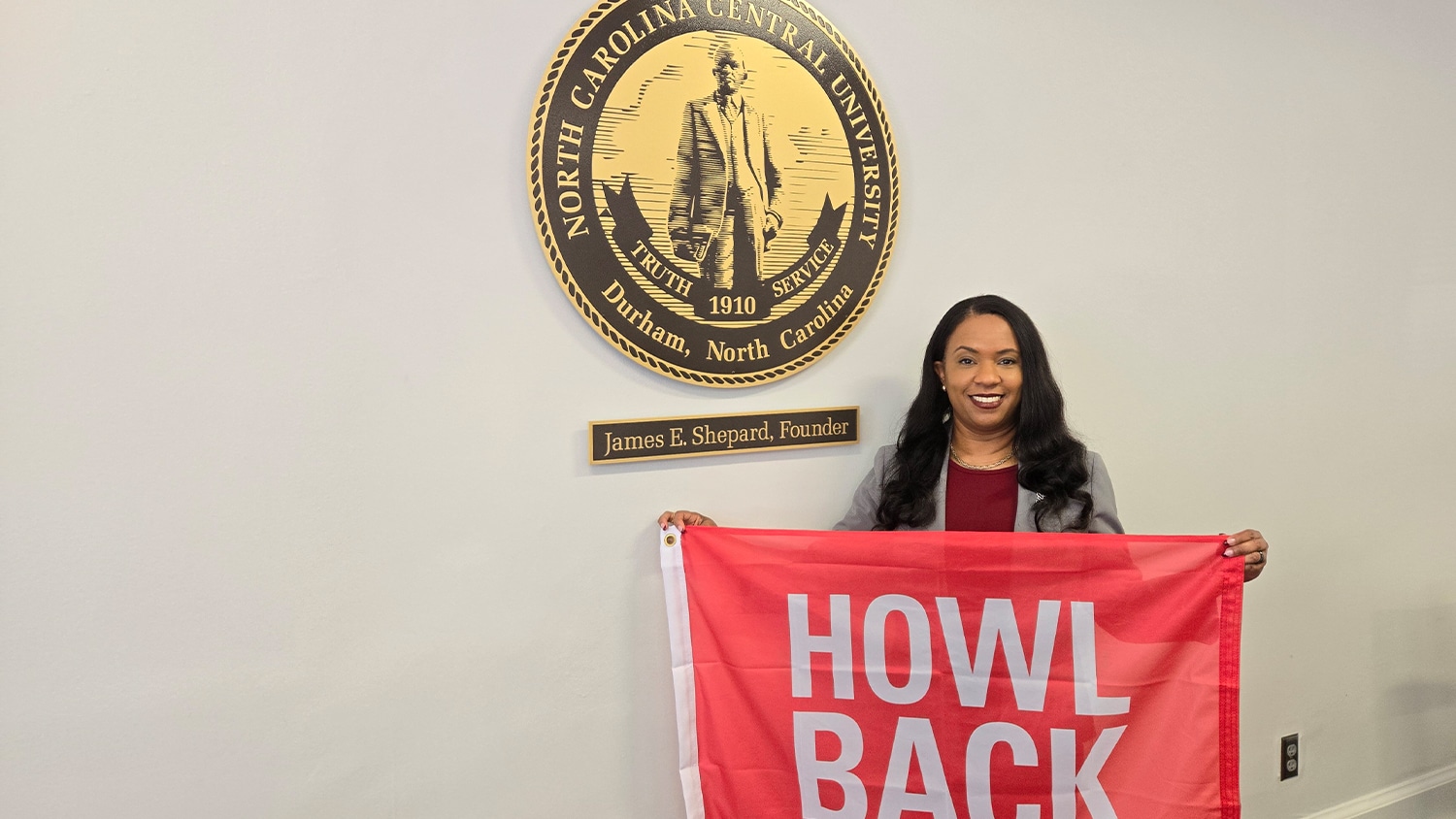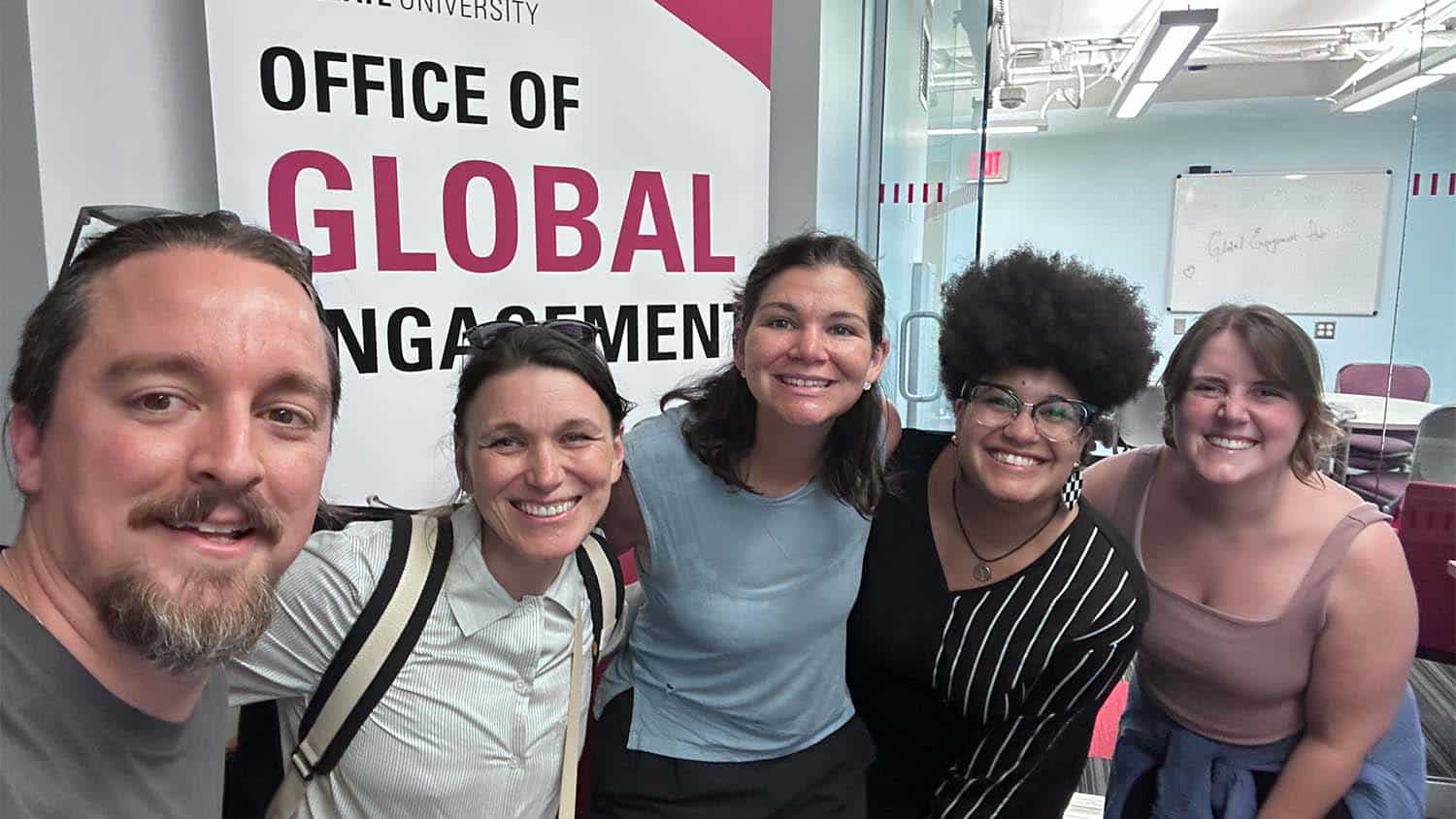Meet Sachelle Ford
With more than a decade of research, teaching and student development experience, Sachelle Ford joins NC State as assistant director of the African American Cultural Center.

As the new assistant director of the African American Cultural Center, Sachelle Ford is on a mission to establish the center as a hub for research and scholarship initiatives related to African-American and African Diaspora cultures.
She has more than a decade of experience in the area, including research and curriculum development, teaching, program coordination and student development.
Originally from Jamaica, Ford spent most of her childhood in Atlanta, Georgia. She is the first in her family to go to college, earning a bachelor’s degree in English from Emory University and a doctorate in English from Brown University.
She epitomizes the words “lifelong learner,” jokingly describing herself as a “weird” kid who much preferred to read books than play with friends.
“I grew up as a major reader, just a nerdy, super-introverted kid,” she says. “I’ve always loved literature. I loved thinking about language, I loved how reading helped me make sense of the world and understand it and that it took me to places that I hadn’t experienced myself. It gave me exposure to the world.”
Most recently a lecturing fellow in Duke University’s Thompson Writing Program, Ford is trading in a full-time teaching gig for one that combines her experience and talents in new ways.
Read on to learn about how she landed at NC State in May 2018 and what she hopes to accomplish in her new role.
What made you decide to come to NC State and pursue this position?
I was in search of a position that would allow me to marry my research background with my work with students. I truly loved the classroom, but I knew that there were other aspects of my personality and professional interests that I wanted to explore. From the moment I saw the ad for this job, I knew this was the work I wanted to do. When I came to campus and learned more about the center and its original mission as an educational unit, I was excited about the possibility of working to realize that mission.
What were your immediate priorities?
I want to foster collaborative partnerships across campus and in the community. On my second morning here, I was invited to a meeting with campus partners who work with the African-American community. I introduced myself and told them what I’m trying to do, to make the center a research hub, and people were immediately receptive. I walked away from that meeting with a list of names, and I went from there. At times, that involved emailing faculty essentially saying, ‘I’m here. How can the center support your work?’
What was the response like?
It was wonderful. It was encouraging that faculty members who are very busy would take the time to respond and meet with me. One of the things I heard consistently was that they are so busy that it can be hard to branch out and find out what other faculty members are working on. So I’m trying to create a network for collaboration and for supporting academics of color at a predominately white institution.
What are some of the projects you’ve been working on since you started?
I created a Faculty Fellowship Program that will provide fellows with $600 stipends for their research. We’re focusing on interdisciplinary projects and those that draw from different disciplines to inform the work. We’re interested in exploring what happens when we put scholars who are working in different disciplines in conversation with each other.
We want to invest in faculty and their research about issues that impact African-descended communities. It’s incredibly expensive to do research and present it. Of course, $600 is not going to go all the way, but it might cover a conference registration fee or something similar. And if we can show that it’s working and the need is there, we can build the program and offer more resources in the future.
This semester I redesigned the Mate Masie series directly in response to what faculty told me in those initial meetings over the summer. We’ve had sessions about IRB (Institutional Review Board) requirements, how to be successful in getting grants and other topics. Most recently, I invited four faculty members from different disciplines to come in and have an informal conversation with undergraduate students who might be interested in doing research. The students told me they didn’t want it to be a traditional panel presentation, so we had a “table talk” where they all sat around a big table and had great conversations.
What are your biggest goals for this position?
Broadly speaking, I’m working to raise the academic profile of the African American Cultural Center and its contributions to the intellectual community here at NC State. More specifically, I would love to assemble a research team of faculty, graduate students and undergrads to do community-engaged scholarship. To go out into the community and ask, “What do you need?” and “What kind of research would be helpful for you to have?” These aren’t questions I was trained to ask in my academic discipline. One of the things I appreciate most about this position is that while I’m less focused on my own research agenda, I get to learn about the research other people are interested in and in need of. It’s a really fulfilling orientation to have – that I get to be of service to other people.
What is your favorite part of the job so far?
There is no blueprint for my job, and I really like the intellectual task of figuring it out. I get to use many of the same skills that I acquired as an academic, but just in different ways and for a different kind of outcome. It also requires me to push myself outside of my comfort zone, to be more extroverted than I naturally am. But I appreciate that about this job, and I’m having a blast.
- Categories:


